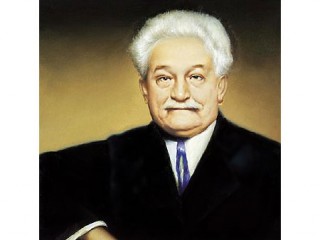
Leos Janacek biography
Date of birth : 1854-07-03
Date of death : 1928-08-12
Birthplace : Hukvaldy, Moravia
Nationality : Czech
Category : Famous Figures
Last modified : 2011-10-13
Credited as : opera composer, Metropolitan Opera,
The Czech composer Leoš Janaček was one of the most important opera composers of the first half of the 20th century.
Leoš Janaček, one of 14 children, was born in an obscure village in Moravia, where his father was an impoverished schoolteacher and church organist. Leoš was sent as a choirboy to the St. Augustine Abbey, Brno, at the age of 10, where he received a rudimentary musical education and learned to play the organ. With the help of a patron, he went to Prague in 1874 to enter the organ school with the intention of becoming an organist and church choir director. His interest in composition grew, and study at the conservatories in Leipzig and Vienna followed. By the time he was 25, he had acquired a solid technique, although he had not written any compositions of consequence.
In 1875 Janaček returned to Brno, where he spent the rest of his life. He worked indefatigably to make this provincial city into a musical center. He conducted choirs, established a symphony orchestra, and founded an organ school to train church musicians. Frank and impolitic, he alienated himself from the musical establishment in Prague, and thus his recognition as a composer was delayed.
Janaček became interested in collecting folk songs and in studying the relationships between language and music. He wrote down, in musical notation, sentences and expressions he heard, and he was fascinated with animal sounds.
Not until he was almost 50 did Janaček achieve musical maturity in his opera Jenufa (1903). First produced in Brno, it eventually received performances in Prague, Vienna (in German), cities in Germany, and New York City at the Metropolitan Opera in 1924. The last 20 years of his life were very fruitful and filled with honors. His operas Kata Kabanova (1921), The Cunning Little Fox (1924), The Makropolous Case (1925), and The House of the Dead (1928) were widely performed in the post-World War II period.
Janaček's opera texts show a wide variety of types, from the animal fairy-tale atmosphere of The Cunning Little Fox to the gloom of Fyodor Dostoevsky's House of the Dead. Jenufa and Kata Kabanova are in the tradition of verismo, that is, realistic, opera: they are stories of simple, rural people involved in violent emotional experiences. The outstanding traits of these operas are the vividness of emotional expression and the avoidance of typically operatic conventions. The melodic lines proceed in lines close to speech, while the orchestra uses leitmotivs in a free manner. All the operas, no matter how different in subject, express the composer's compassion for the human condition.
Janaček also wrote a number of important instrumental compositions. These include two String Quartets (1923, 1928), Taras Bulba for orchestra (1924), the Suite for Wind Instruments (1924), and numerous songs and piano pieces. His Glagolitic (Slavonic) Mass (1927) achieved international recognition.
















